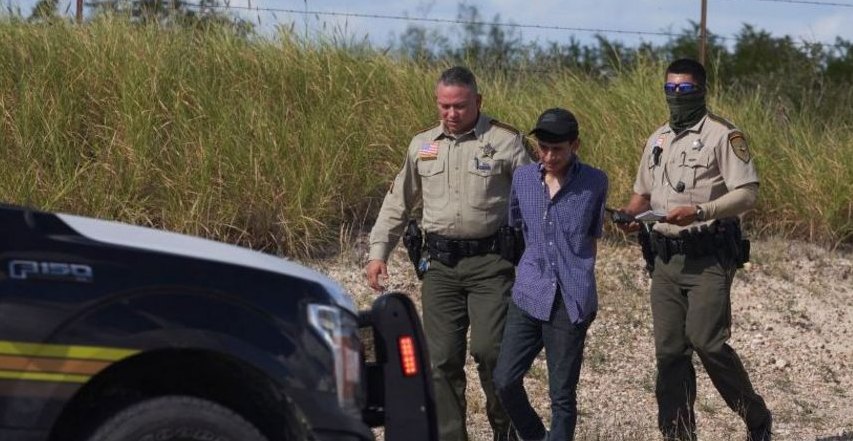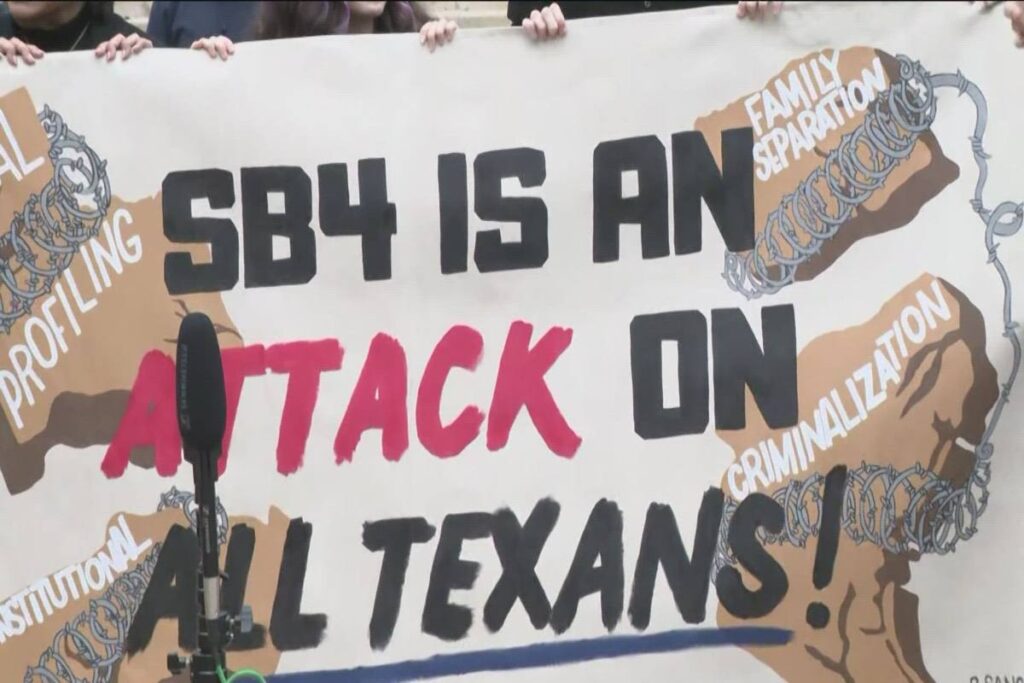Each time this big question pops up, a wave of sadness moves across Maria Acosta’s body. The question, “Señora, do I need to move?” constantly haunts Iowa immigrants seeking guidance from Acosta.
The sad thing is she doesn’t know how to respond most of the time. Acosta, a community organizer for the Iowa Migrant Movement, says she feels powerless and frustrated whenever the question arises.
Of course, she can’t tell them everything will be alright because she can’t guarantee it. Recently, Iowa legislators hurriedly passed a bill empowering local officials to detain certain undocumented immigrants. Furthermore, the state judges authorized mandatory deportations, which the governor signed into law.
While the enactment date is July 1, Acosta and fellow advocates observe anxiety within immigrant communities. She notes that their fear is real, and they’re confused. Despite a decade or more of residence, the land remains their anchor, but now it feels uncertain.
ALSO READ: Biden Capitalizes on Trump’s Vulnerability on Women’s Reproductive Rights
Immigration Measures Across Iowa and Other States
Iowa joins a roster of at least nine states this year deliberating restrictions reminiscent of Texas’ SB 4 immigration law. Although some proposals are still pending, others have failed. The enforcement and financial logistics of Iowa’s SF 2340 remain unclear, bringing about speculation and legal challenges. The case’s potential reflects the fate of Texas’ law, which is currently involved in court battles.

However, concerns persist over racial profiling and strained community-law enforcement relations. Erica Johnson, Executive Director of the Iowa Migrant Movement for Justice, questions the practical implications. According to her, how would the law deport someone? Moreover, who is being deported? She further notes that no one knows how the law would be applied.
Trends in State Immigration Law
The States contemplating legislation similar to Texas’ immigration law share several things in common. Most of them have Republican-dominated legislatures and are far from the US-Mexico border. In addition to Iowa, initiatives were considered in Idaho, Missouri, Kansas, South Carolina, and Louisiana, according to the National Conference of State Legislatures.
Conversely, similar efforts failed in Arizona, where a Democratic governor vetoed a bill passed by the Republican-dominated legislature, and in Mississippi and West Virginia, proposals stalled in committee.
ALSO READ: Choosing Trump Over Biden is a “Policy, Not Emotion” Decision, Sage Steele Says
Governor Kim Reynolds of Iowa notably aligned with her Texas counterpart’s stance. She noted that the state intervened to improve border security due to federal government inaction.
Governor Kim Reynold’s Stance on Immigration Enforcement
According to Reynolds, those who come into the United States illegally have broken the law. However, President Joe Biden refuses to deport them. She further noted that the bill allows Iowa legislators to do what Biden won’t do: enforce immigration laws already on the books.
Under the Iowa bill, immigrants who reenter the United States after being denied entry or deported face an aggravated misdemeanor charge. Furthermore, the bill mandates state judges to issue deportation orders upon conviction of this aggravated misdemeanor offense.
The 2024 Campaign Trail and Immigration Issues
As the 2024 presidential election is fast approaching, immigration has become a crucial issue dominating the campaign discourse. Republicans seize the opportunity to slam the Biden administration’s border security tactics, describing it as the focus of their platform.
On the other hand, Democrats counter by accusing presumptive Republican nominee Donald Trump and his GOP allies of deliberately inflaming the crisis for political gain and altering possible solutions.

With the ever-increasing record of migrants trying to get into the United States, tensions escalate at the US-Mexico border and nationwide. Republican-dominated states increase efforts to take authority over immigration enforcement. This further shows a broader trend of states fighting for control amidst the ongoing immigration debates.
Notably, a similar trend happened in 2010, following Arizona’s controversial immigration law. At that time, the Supreme Court ultimately canceled most of the state’s 2010 law and the rules that followed it. In Arizona’s 2012 decision, the court allowed one of the most controversial parts of the law to stand.
The part that stood out was the provision that allows officials to review a person’s immigration status while carrying out other laws should “reasonable suspicion” exist that the person entered the United States illegally.
You Might Also Like:
John Goodman Flaunts Physique After 200-Pound Weight Loss
iPhone Spyware Attack Affects 92 Countries, Apple Notifies Users
Fish for Thought: Do Sardines Extend Lifespan?
“I Really Parented Myself,” Drew Barrymore Reflects on Childhood Stardom
Jennifer Aniston Debuts Chic Spring Bob, a Modern Version of “The Rachel”
